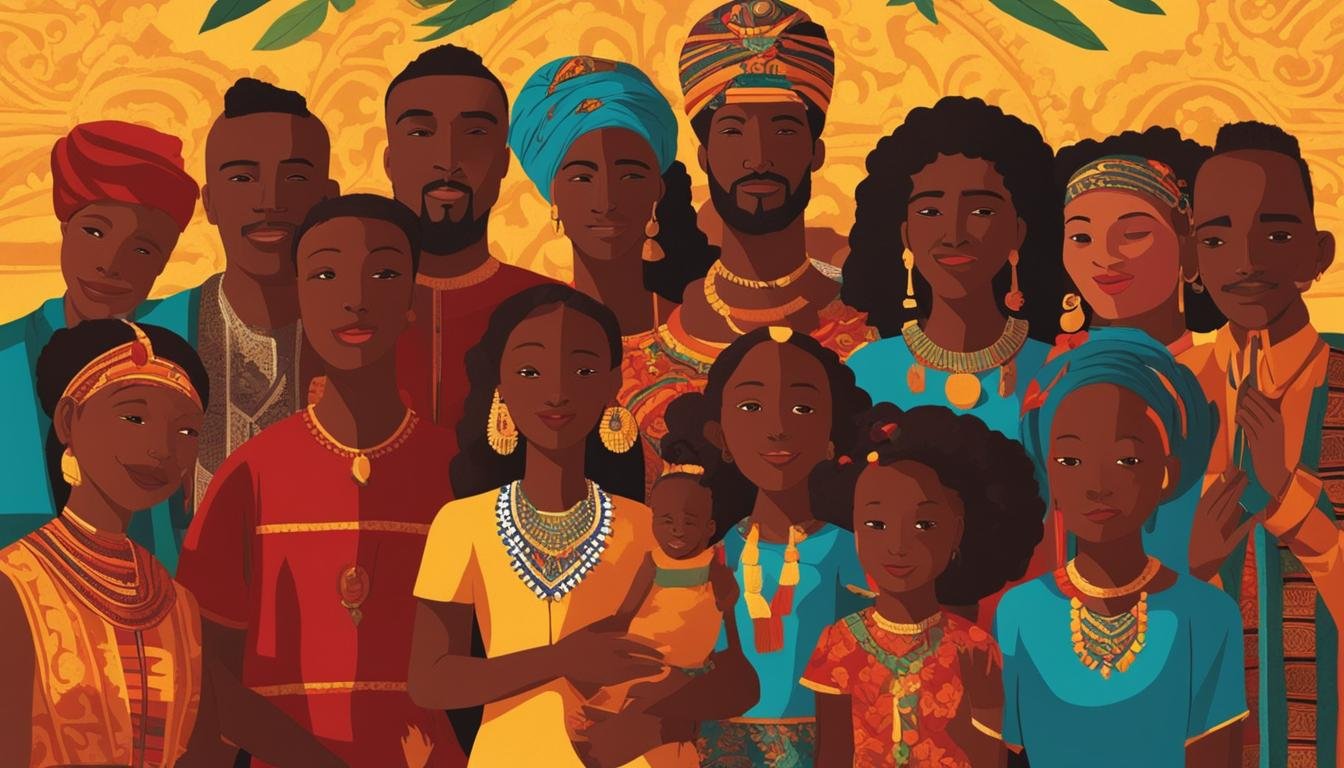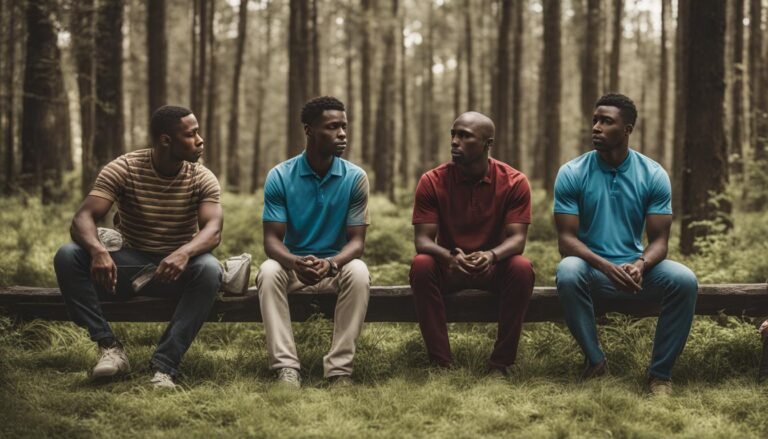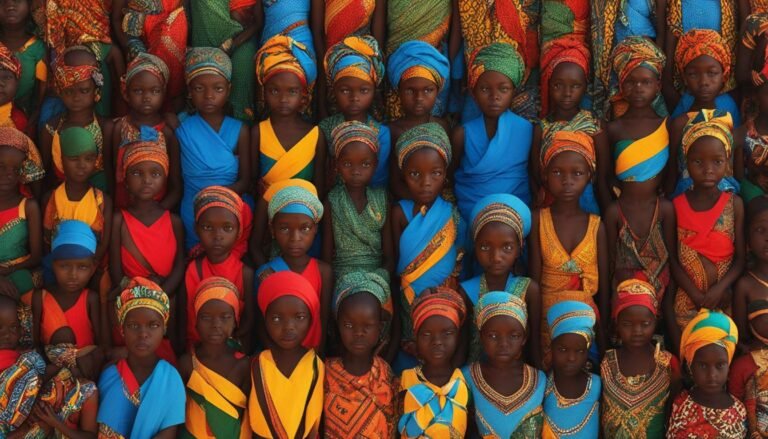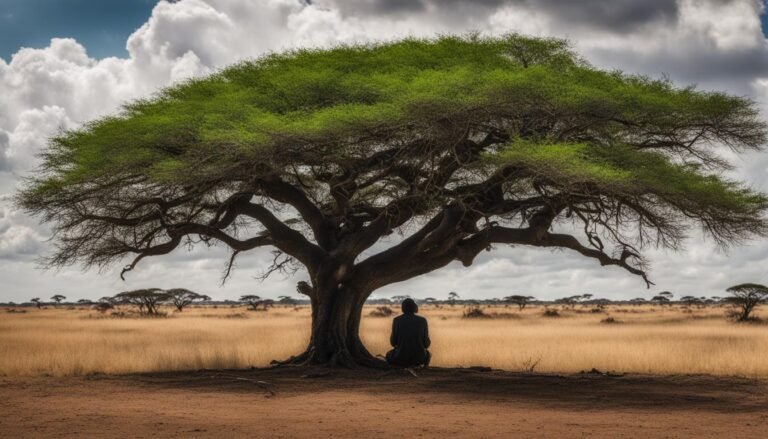What is Black Culture?
Black culture refers to the diverse range of customs, traditions, beliefs, practices, art forms, languages, and social behaviors that have emerged from the experiences and contributions of people of African descent. It encompasses the shared experiences, history, and identity of Black people, which have been shaped by their interactions with various societies, including Africa, the Americas, the Caribbean, and Europe. African Americans have faced systemic and violent racism throughout history, which has profoundly influenced their culture.
Despite these challenges, African Americans have demonstrated resilience and made significant contributions in areas such as music, dance, art, literature, religion, cuisine, and activism. Black culture is not monolithic, but rather a dynamic and evolving entity that continues to shape society and foster a sense of identity and pride among Black individuals and communities.
Key Takeaways:
- Black culture encompasses customs, traditions, beliefs, art forms, and social behaviors of people of African descent.
- African Americans have faced historical racism, but have shown resilience and made significant contributions in various fields.
- Black culture is diverse and dynamic, shaping society and fostering a sense of identity and pride among Black individuals and communities.
- Music, dance, art, literature, religion, cuisine, and activism are important aspects of Black culture.
- Understanding and appreciating Black culture is crucial for building a more inclusive and interconnected society.
Historical Roots of Black Culture
From the earliest days of American slavery, attempts were made to strip African slaves of their cultural identity. However, the physical isolation and societal marginalization of slaves allowed for the retention of significant elements of traditional African culture. African-based oral traditions, such as storytelling and folktales, became powerful tools for preserving history and cultural information. The legacy of African cultures, slavery, slave rebellions, and the civil rights movement has shaped African American religious, familial, political, and economic behaviors. African Americans have created their own culture and unique history in the United States, which has had a transformative impact on American and global culture.
Illustration depicting the historical roots and African influences on Black culture
Key Elements of Black Culture
Black culture is a vibrant tapestry woven with various elements that reflect the creativity, resilience, and diversity of the Black community. This section explores key aspects of Black culture, including language and vernacular, music, dance, and art.
Language and Vernacular in Black Culture
Language plays a crucial role in shaping the unique identity of Black culture. African languages, creoles, and dialects have greatly influenced the linguistic landscape. One prominent linguistic style is African American Vernacular English (AAVE), which has emerged as a distinct form of expression. AAVE incorporates elements of African languages, English, and regional dialects, and has contributed to the rich tapestry of Black vernacular.
Music in Black Culture
Music is a central and celebrated element of Black culture. Its transformative power has given birth to various influential genres that have shaped the musical landscape globally. From the soulful melodies of jazz and blues to the rhythmic beats of gospel, R&B, hip-hop, reggae, and Afrobeat, Black musicians and artists have left an indelible mark on the world of music. Their profound artistry and musical innovations continue to inspire and resonate with audiences across generations.
Dance in Black Culture
Expressive and dynamic, dance forms an integral part of Black culture. Jazz, with its improvisational style and infectious energy, emerged as a groundbreaking dance form during the Harlem Renaissance. Tap dance, a vibrant percussive dance style, gained popularity through influential Black performers. Hip-hop, born from the urban streets, has become a global phenomenon, with its intricate movements and powerful storytelling. Traditional African dances, characterized by rhythmic movements and symbolic gestures, also play a significant role in preserving cultural heritage.
Art in Black Culture
Black artists have made significant contributions to the world of visual arts, literature, theater, and film, showcasing a rich and diverse range of artistic expression. Through their creativity, Black artists have challenged societal norms, promoted cultural pride, and provided unique perspectives on social issues. From acclaimed visual artists like Jean-Michel Basquiat and Kara Walker to influential writers like Toni Morrison and Langston Hughes, Black creatives have shaped the cultural landscape through their powerful storytelling and artistic vision.
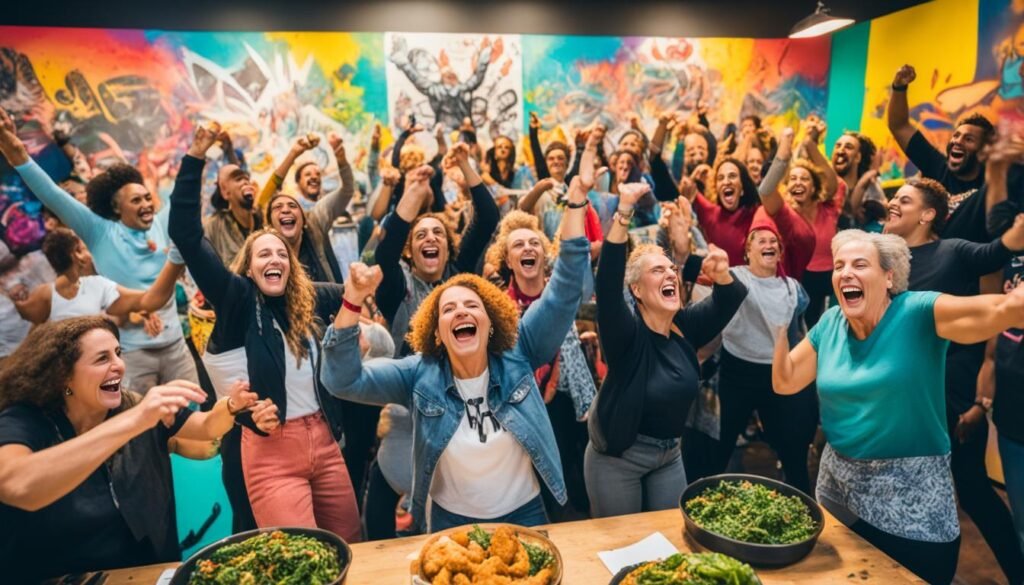
Cultural Significance of Black Culture
Black culture is not only a rich tapestry of traditions, art forms, and languages but also holds immense cultural significance. It encompasses diverse religious and spiritual practices, reflecting the beliefs and traditions within the Black community. Moreover, cuisine plays a vital role in Black culture, showcasing the fusion of African, European, and Indigenous culinary traditions. Let’s explore the cultural significance of religion, spirituality, and cuisine in Black culture.
Religion and Spirituality in Black Culture
Religion and spirituality are integral to the cultural fabric of the Black community. Black culture embraces a variety of religious practices, including:
- Christianity: With its roots in African American history, Christianity has played a significant role in the religious lives of Black individuals.
- Islam: Islam has gained prominence within the Black community, offering spiritual guidance and a sense of identity.
- Traditional African Religions: Many African Americans continue to practice traditional African religions, connecting to their ancestral roots.
- Rastafarianism: Originating in Jamaica, Rastafarianism emphasizes unity, social justice, and the worship of Emperor Haile Selassie I of Ethiopia.
These diverse religious practices in Black culture reflect the resilience, strength, and spiritual connection that have sustained the Black community throughout history.
Cuisine in Black Culture
Cuisine plays a crucial role in Black culture, representing a fusion of culinary traditions from different continents. African, European, and Indigenous influences have shaped the vibrant flavors and unique dishes found within Black culture.
“Food is a central element of culture, symbolizing history, heritage, and a sense of belonging.”
Soul food, a prominent culinary tradition in Black culture, emerged during the era of slavery in the United States. It encompasses dishes such as fried chicken, collard greens, cornbread, and macaroni and cheese, all prepared with love and served with care. The Creole cuisine of Louisiana combines French, Spanish, African, and Indigenous culinary traditions, resulting in flavorful dishes like gumbo, jambalaya, and étouffée.
Moreover, various regional African cuisines contribute to the diverse culinary landscape of Black culture. From West African dishes like jollof rice and fufu to East African favorites like injera and samosas, the rich flavors and ingredients encapsulate the cultural diversity of the African continent.
Through its cuisine, Black culture celebrates heritage, fosters a sense of community, and preserves ancestral traditions.
Black culture’s emphasis on religion, spirituality, and cuisine showcases the resilience, unity, and diversity within the Black community. These elements not only provide a spiritual foundation and a means of cultural expression but also promote cultural exchange and understanding among different communities. Black culture’s cultural significance extends beyond its boundaries, influencing and enriching societies worldwide.
Diversity in Black Culture
Black culture is a testament to the remarkable diversity within the Black community, comprising numerous distinct ethnic, regional, and national identities. Each of these identities contributes its own unique customs, traditions, and artistic expressions to the broader tapestry of Black culture.
The beauty of Black culture lies in its incredible range of influences and experiences. From African nations with rich cultural histories to vibrant Black communities spread throughout the world, these diverse identities collectively shape and enrich the broader Black cultural landscape.
One notable aspect that reflects this diversity is fashion and style. Black individuals have made significant contributions to the world of fashion, showcasing a blend of traditional African attire and contemporary urban fashion. African-inspired prints, hairstyles, and clothing have left an indelible mark globally, celebrating the richness and vibrancy found within the Black community.
Black fashion has long been at the forefront, setting trends and inspiring creativity in the industry. From renowned designers like Virgil Abloh, Ozwald Boateng, and Stella Jean to influential figures like Naomi Campbell and Rihanna, Black individuals have revolutionized the way we perceive and engage with style. They have defied norms, showcasing their unique identities through fashion and inspiring countless others.
In addition to fashion, other cultural expressions such as music, dance, and art also demonstrate the rich diversity within Black culture. These art forms often act as mediums for self-expression, celebrating heritage, and telling stories that resonate deeply within the community and beyond.
Black culture’s diversity is a testament to the complexity and uniqueness of the Black experience. It dispels monolithic narratives and highlights the richness found within each individual and community. By embracing and celebrating this diversity, we ensure that the myriad voices of Black culture are heard and appreciated for their immense contributions to our global society.
Impact of Black Culture on Society
Black culture has had a profound and far-reaching impact on various aspects of mainstream American and global society. Its rich heritage and diverse expressions have contributed to shaping the world in significant ways. From music genres to fashion trends, language, and culinary traditions, the influence of Black culture extends beyond geographical boundaries, enriching societies worldwide.
Elevating Entertainment and Arts
Black culture has played a pivotal role in shaping popular entertainment, fostering creativity, and pushing artistic boundaries. Music genres like jazz, blues, and hip-hop, rooted in the African American experience, have not only defined entire eras but have also influenced music globally. Artists such as Louis Armstrong, Aretha Franklin, Bob Marley, and Beyoncé have left an indelible mark on the industry, demonstrating the power of Black music to captivate audiences and drive cultural change.
Black culture represents a kaleidoscope of influences, stories, and art forms that have revolutionized the global entertainment landscape. Music, literature, visual arts, and performance arts have all been enriched and redefined in countless ways by the contributions of Black artists throughout history.
Pioneering Political Transformation
The historical struggle for justice, equality, and civil rights within the Black community has had a profound impact on political systems and ideologies. Black culture has been at the forefront of social and political movements, advocating for change and pushing society to address issues of systemic racism and inequality. Figures like Martin Luther King Jr., Angela Davis, Malcolm X, and Nelson Mandela have inspired generations across the globe to strive for a more inclusive and just society.
Fostering Cultural Exchange and Understanding
Black culture has been a catalyst for cultural exchange and understanding, breaking down barriers, and promoting dialogue between different cultures. Through its representation in art, music, literature, and film, Black culture has challenged stereotypes and provided authentic perspectives. The global influence of Black culture has fostered appreciation and respect for the experiences and contributions of Black individuals and communities worldwide.
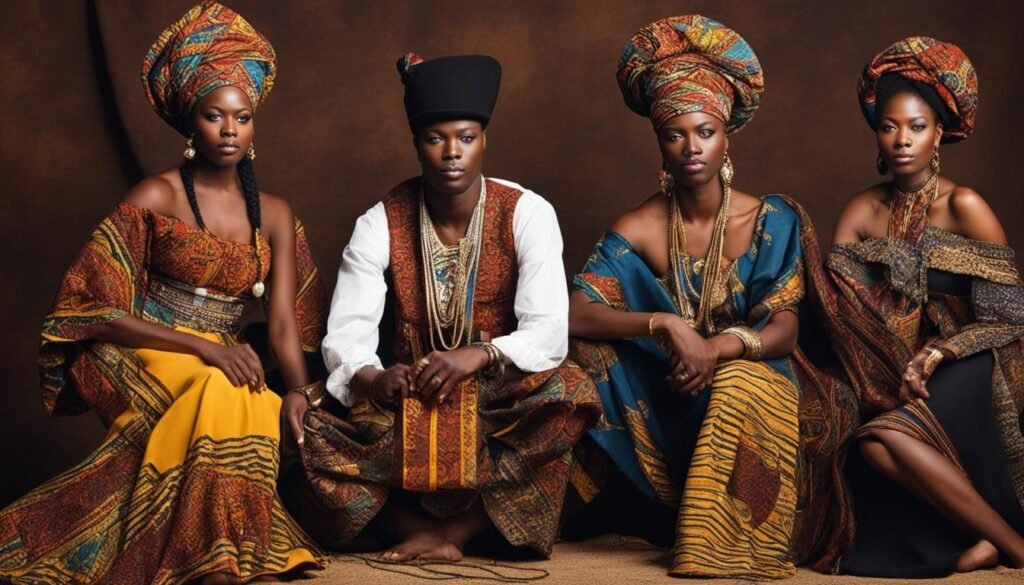
Increasing Representation and Diversity
The impact of Black culture is evident in the increasing representation and celebration of diverse voices in mainstream media and society. Black artists, writers, filmmakers, and performers have broken barriers, reshaping the narratives and challenging traditional norms. By promoting inclusivity and showcasing the richness of Black experiences, Black culture has demonstrated the importance of representation in creating a more equitable and balanced society.
The Power of Cultural Influence
Black culture’s global influence transcends borders and has the power to shape not only artistic expression but also language, fashion, and cuisine. From African-inspired fashion trends to the influence of African American Vernacular English (AAVE), Black culture has left an indelible mark on society. Cuisine, blending African, European, and Indigenous influences, has introduced the world to dishes like soul food, Creole cuisine, and various regional African specialties.
| Impact of Black Culture | Examples |
|---|---|
| Music | Jazz, blues, hip-hop |
| Language | African American Vernacular English (AAVE) |
| Fashion | African-inspired prints, hairstyles |
| Cuisine | Soul food, Creole cuisine |
| Visual Arts | Paintings, sculptures, photography |
Black culture’s impact reaches far beyond its immediate influence. It continues to shape and inspire society, reminding us of the importance of recognizing, respecting, and celebrating the contributions and experiences of Black individuals and communities worldwide.
Conclusion
Black culture undeniably holds great significance in American and global society. Its historical roots, rich traditions, and cultural contributions have left an indelible mark on the world. More than just a collection of customs and practices, Black culture provides a profound sense of identity, resilience, and empowerment for Black individuals and communities.
One of the distinguishing features of Black culture is its celebration of diversity. Black culture encompasses a wide range of ethnic, regional, and national identities, each bringing its own unique traditions and artistic expressions. This diversity is a testament to the richness and vibrancy of Black culture, highlighting the varied experiences and influences within the Black community.
Furthermore, Black culture plays a crucial role in promoting social justice and advocating for equality. Throughout history, Black individuals have been at the forefront of civil rights movements, using their culture as a tool for resistance, empowerment, and political activism. Black culture fosters appreciation for the contributions of Black people to human civilization, challenging stereotypes and fostering a more inclusive society.
Understanding and appreciating Black culture is not only an act of recognition but also a step towards building a more interconnected world. By embracing the significance of Black culture, we acknowledge the importance of diverse voices and experiences. It is through this understanding that we can work together to create a society where everyone is valued and respected, regardless of their cultural background or heritage.
FAQ
What is Black culture?
Black culture refers to the diverse range of customs, traditions, beliefs, practices, art forms, languages, and social behaviors that have emerged from the experiences and contributions of people of African descent.
Why is understanding Black culture important?
Understanding Black culture is important as it fosters appreciation for the contributions of Black people to human civilization, promotes social justice, and builds a more inclusive and interconnected world.
What is the history of Black culture?
The history of Black culture includes the legacy of African cultures, slavery, slave rebellions, and the civil rights movement, which have shaped African American religious, familial, political, and economic behaviors.
What are the key elements of Black culture?
The key elements of Black culture include language and vernacular, music, dance, and art forms that have emerged from the Black community, showcasing a wide range of artistic expression.
How culturally significant is Black culture?
Black culture holds significant cultural importance as it reflects the diverse beliefs, traditions, and practices within the Black community. It plays a crucial role in shaping identity, fostering resilience, and promoting unity in the face of adversity.
How diverse is Black culture?
Black culture is not monolithic but consists of a rich tapestry of distinct ethnic, regional, and national identities, each bringing its own traditions, customs, and artistic expressions to the broader Black culture.
What is the impact of Black culture on society?
Black culture has had a pervasive and transformative impact on various aspects of mainstream American and global culture. From music genres to fashion trends and culinary traditions, Black culture has enriched societies worldwide and influenced popular entertainment, politics, literature, visual arts, and more.
What is the conclusion of Black culture?
Black culture is an essential and vibrant part of American and global society. It provides a sense of identity, resilience, and empowerment for Black individuals and communities, celebrating diversity and promoting social justice.
